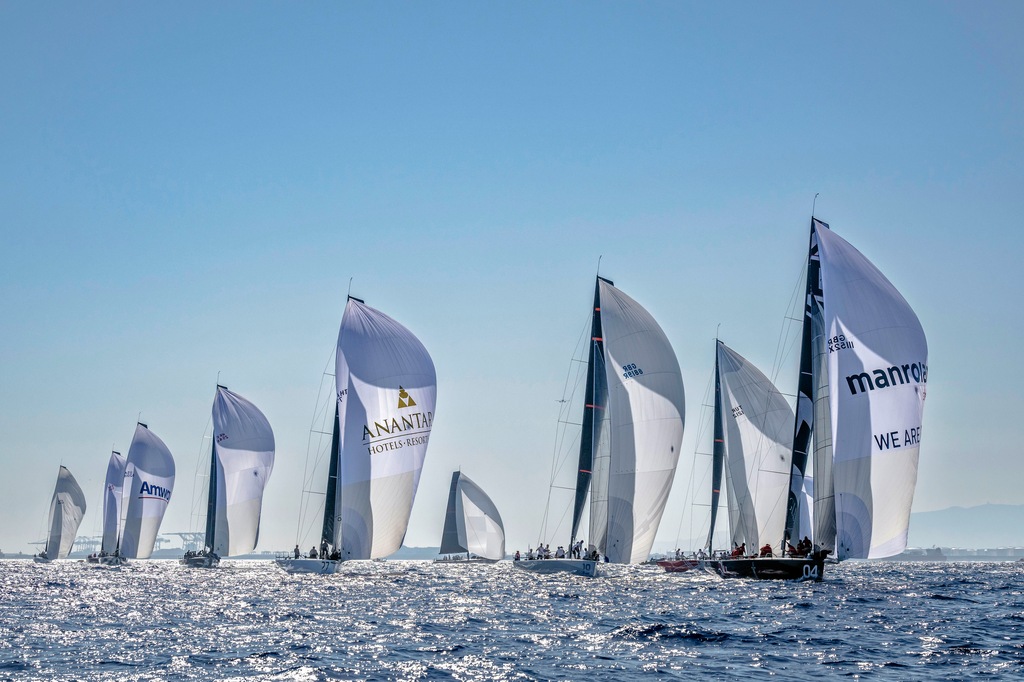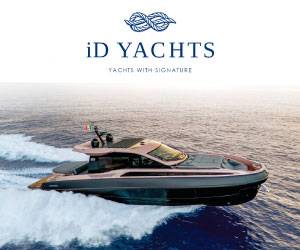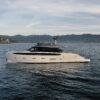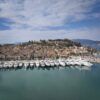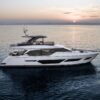For the first time, the pinnacle event in grand prix monohull sailing – the Rolex TP52 World Championship – will be held outside European waters. The 2024 edition of this prestigious annual competition will be hosted by the New York Yacht Club (NYYC) in Newport, Rhode Island (US) from 15–20 July. For Rolex it unites two major relationships. First, the NYYC, its oldest partner in the sport of yachting, dating back to 1958, and second, the world championship of which it has been the Title Sponsor since 2017.
The five-day, 10-race regatta, the highlight of the annual 52 SUPER SERIES for which Rolex is also the Official Timepiece, is one of the most keenly contested and competitive in sailing. The rewards are highly coveted: the world championship title and Rolex timepiece for the triumphant crew.
 The NYYC will be an exceptional host. Established in 1844, this prestigious club founded the America’s Cup, the international challenge race series whose roots date back to 1851 when the famous Auld Mug was awarded to the winner of a race around the Isle of Wight in the United Kingdom. It hosted the first transatlantic race in 1866, and had an influential role in establishing the rules for yachting as a sport. Rolex’s seminal partnership with the club is the brand’s longest in yachting, spanning almost 70 years. Today, the club organizes major regattas and has two imposing clubhouses; one in New York City, opened in 1901, the other on the water in Newport. Jay Cross, Commodore of the NYCC, says:
The NYYC will be an exceptional host. Established in 1844, this prestigious club founded the America’s Cup, the international challenge race series whose roots date back to 1851 when the famous Auld Mug was awarded to the winner of a race around the Isle of Wight in the United Kingdom. It hosted the first transatlantic race in 1866, and had an influential role in establishing the rules for yachting as a sport. Rolex’s seminal partnership with the club is the brand’s longest in yachting, spanning almost 70 years. Today, the club organizes major regattas and has two imposing clubhouses; one in New York City, opened in 1901, the other on the water in Newport. Jay Cross, Commodore of the NYCC, says:
“The New York Yacht Club is thrilled to welcome the Rolex TP52 World Championship to Newport especially as it is part of our biennial Race Week at Newport presented by Rolex. As the historic centre of American yachting, Newport is ideally suited to host the sailing world’s most prestigious classes such as the TP52. Together with our longstanding partner Rolex and the 52 SUPER SERIES, we look forward to organizing a landmark edition of the competition.”
 While 2024 marks the first occasion the Rolex TP52 World Championship has been held on Narragansett Bay in the north-east of the United States, many of the owners and their professional crews will be familiar with this famous body of water, which has hosted a number of grand prix sailing events over the years. In the summer months, the weather can be changeable, with the frequent passage of low-pressure systems, originally developing to the south, starting their journey east. Prevailing wind is typically northerly or a south-westerly sea breeze. The nuances of the tidal current that flows in and out of the bay are also critical to race strategy. With the sailing environment offering opportunities for courses both inshore and offshore, crews will likely face both flat water and more disturbed sea states. Expert boat handling, especially at mark roundings, and making the right tactical calls will be essential.
While 2024 marks the first occasion the Rolex TP52 World Championship has been held on Narragansett Bay in the north-east of the United States, many of the owners and their professional crews will be familiar with this famous body of water, which has hosted a number of grand prix sailing events over the years. In the summer months, the weather can be changeable, with the frequent passage of low-pressure systems, originally developing to the south, starting their journey east. Prevailing wind is typically northerly or a south-westerly sea breeze. The nuances of the tidal current that flows in and out of the bay are also critical to race strategy. With the sailing environment offering opportunities for courses both inshore and offshore, crews will likely face both flat water and more disturbed sea states. Expert boat handling, especially at mark roundings, and making the right tactical calls will be essential.
Created in the early 2000s, the TP52 class is one of the most popular in sailing. It has remained at the forefront of grand prix yachting due to its exemplary management and controlled development that keeps pace with advancements in materials and technology. The foundation stone is a “box rule”. To be eligible, a boat must fit into a box of dimensions that cover, among other elements, length, draught and sail area. This ensures the yachts are fundamentally equal, therefore placing emphasis on sailing skill and teamwork.
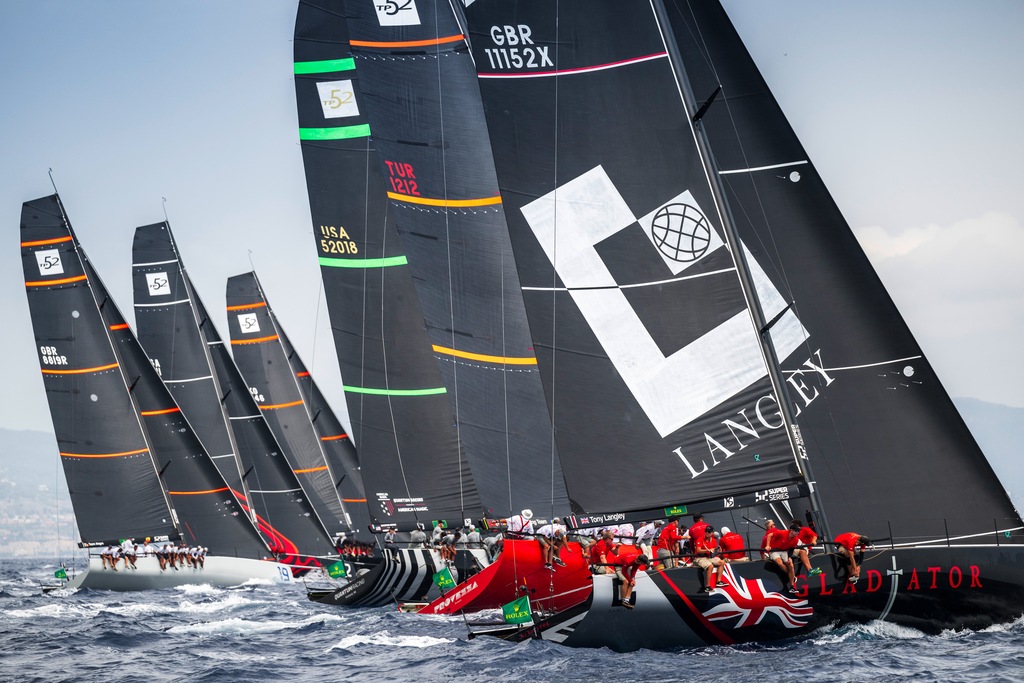 Tom Slingsby, a Rolex Testimonee and three-time Rolex World Sailor of the Year, has regularly competed at the event and holds it in high-esteem. He explains:
Tom Slingsby, a Rolex Testimonee and three-time Rolex World Sailor of the Year, has regularly competed at the event and holds it in high-esteem. He explains:
“I look at the Rolex TP52 World Championship as probably the best, purest monohull racing you can do. It is really a competition at the highest level between the best tacticians in the world, the best strategists, best trimmers, best bow people. It is really pure sailing, and is probably the hardest event to win. There are 10 to 12 boats at the event each year, each team is extremely well matched, each team has the best professionals from around the world on their yacht, and it is just an almighty battle to try to win it.”
The margins on the water are famously small. Mistakes are mercilessly punished and races often decided by a few metres or seconds. Across short races on compressed courses, crews must maintain a high standard of consistency, with precision and teamwork always rewarded. A single bad race can compromise an entire championship. Communication is key, particularly between the professional tacticians and their often amateur yet highly skilled owner/drivers.
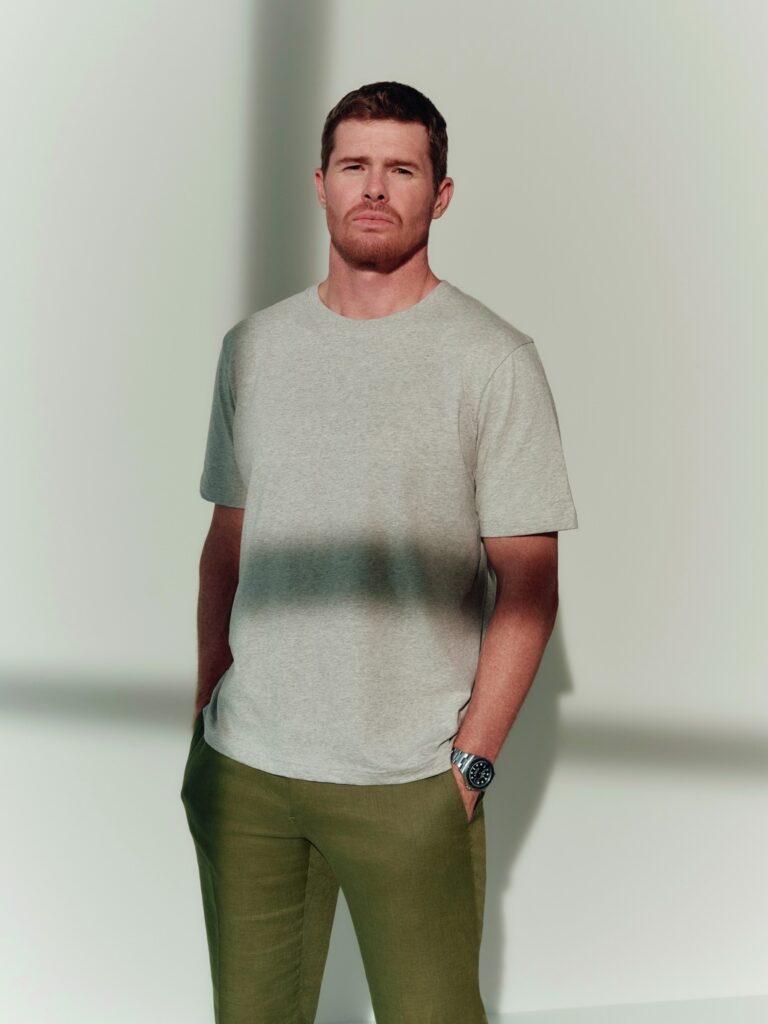 This is recognized by Rolex Testimonee and five-time Olympic medallist Robert Scheidt, who has regularly called tactics at the championship. He says:
This is recognized by Rolex Testimonee and five-time Olympic medallist Robert Scheidt, who has regularly called tactics at the championship. He says:
“The circuit gives a platform for owners to test themselves against each other and against professional crews. After a few years the owners become very strong themselves, steering the boats as well as any professional. It is really nice to see the development of the class and to see how the owners feel very comfortable. It is a great circuit, and really hard to win because of the attention to detail and the high level of development required.”
Such is the high quality of the competition, throughout each championship, it is typical for more than half the entrants to win at least one of the 10 races. The past three editions have been won by different crews – Sled from the United States (2021), Quantum Racing from the United States (2022) and Platoon from Germany (2023). For the 10 international teams expected to compete in Newport, the esteemed setting will undoubtedly add extra lustre to this year’s title.
An unrivalled reputation for quality and expertise
Rolex is an integrated and independent Swiss watch manufacture. Headquartered in Geneva, the brand is recognized the world over for its expertise and the quality of its products – symbols of excellence, elegance and prestige. The movements of its Oyster Perpetual and Perpetual watches are certified by COSC, then tested in-house for their precision, performance and reliability. The Superlative Chronometer certification, symbolized by the green seal, confirms that each watch has successfully undergone tests conducted by Rolex in its own laboratories according to its own criteria. These are periodically validated by an independent external organization.
 The word ‘Perpetual’ is inscribed on every Rolex Oyster watch. But more than just a word on a dial, it is a philosophy that embodies the company’s vision and values. Hans Wilsdorf, the founder of the company, instilled a notion of perpetual excellence that would drive the company forward. This led Rolex to pioneer the development of the wristwatch and numerous major watchmaking innovations, such as the Oyster, the first waterproof wristwatch, launched in 1926, and the Perpetual rotor self-winding mechanism, invented in 1931. In the course of its history, Rolex has registered over 600 patents. At its four sites in Switzerland, the brand designs, develops and produces the majority of its watch components, from the casting of the gold alloys to the machining, crafting, assembly and finishing of the movement, case, dial and bracelet. Furthermore, the brand is actively involved in supporting the arts and culture, sport and exploration, as well as those who are devising solutions to preserve the planet.
The word ‘Perpetual’ is inscribed on every Rolex Oyster watch. But more than just a word on a dial, it is a philosophy that embodies the company’s vision and values. Hans Wilsdorf, the founder of the company, instilled a notion of perpetual excellence that would drive the company forward. This led Rolex to pioneer the development of the wristwatch and numerous major watchmaking innovations, such as the Oyster, the first waterproof wristwatch, launched in 1926, and the Perpetual rotor self-winding mechanism, invented in 1931. In the course of its history, Rolex has registered over 600 patents. At its four sites in Switzerland, the brand designs, develops and produces the majority of its watch components, from the casting of the gold alloys to the machining, crafting, assembly and finishing of the movement, case, dial and bracelet. Furthermore, the brand is actively involved in supporting the arts and culture, sport and exploration, as well as those who are devising solutions to preserve the planet.



